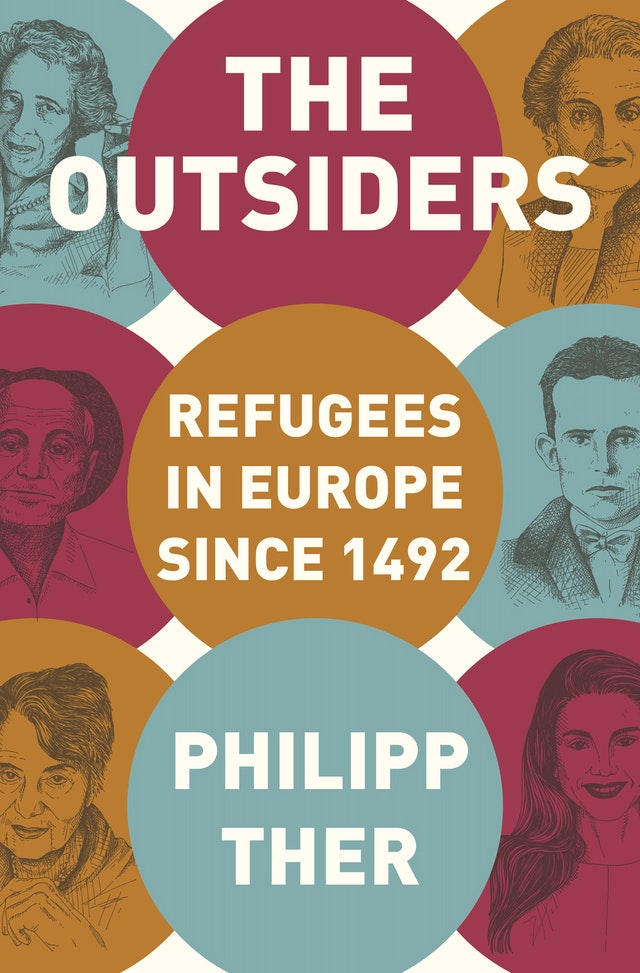Nationalism is only one of many exclusive identities; it is also only one of many powerful forces in Europe and elsewhere that shape political events. Religion and ideology also matter, both in bringing people together and in driving them apart. The energy they create is potentially lethal, particularly for those who find themselves holding onto the wrong (sort of) identity. Identity conflict inevitably creates refugees – people who do not belong to the ‘in-group’ and so find themselves cast out of society. The challenge for governments and societies is to manage the consequences with the least possible dislocation and to their greatest advantage.
This is an age-old challenge, even if the doctrine of self-determination introduced after World War I made it more rather than less complicated. Philipp Ther sketches both the difficulties and the potential in three overlapping narratives – devoted to refugees from religious, ethnic, and political persecution. Much of the analysis centers on the reasons for flight and the path that it takes. Nevertheless, Ther is careful to bring the people involved and the societies that receive them into the equation.
The numbers are eye-watering and the time involved is staggering. Refugees are not like migrant workers, who move in relatively consistent flows and with a clear sense of direction. Instead they tend to mass in sudden explosions of movement in response to irresistible force or existential threat, whether actual or anticipated (something Ther refers to as pro-active flight). Once they start moving, they have no clear sense of direction and it may take years (or even generations!) for resettlement to be completed. Nevertheless, they see liberty in flight because there is no real alternative. They seek refuge from other societies because they have little or no opportunity to turn back.
The stories Ther tells overlap but have elements of chronological distinctiveness. The great religious persecutions took place in the distant past, when movement was difficult, and distances traveled restriction much of the action within Europe. The violence was often horrific and yet solidarity was also available. The Ottomans solicited Sephardim expelled from Spain; Germans embraced (Protestant) Huguenots from France. By contrast, national population movements tended to be better organized and yet less welcoming. The practice of population exchanges in the interwar period fit neatly within the confines of the national state and yet resulted in horrifying privations: consider the movements between Bulgaria, Greece and Turkey after the First World War.
Population ‘exchanges’ became less acceptable after 1948 in part because of the growing interest in the protection of human rights and in part because of the trauma that surrounded the creation of the state of Israel. After that point, political refugees – who had always existed – became increasingly predominant. The punctuated flows out of Hungary, Czechoslovakia, and Poland are good illustrations. This is not to say, however, that either religious or ethnic persecution had stopped taking place. On the contrary, many flows of refugees both in Europe and beyond originated in mixed forms of persecution with important religious, ethnic, and ideological dimensions.
The point Ther underscores through individual case studies and other anecdotal evidence is the extent to which the people on the move are able to contribute to the fate of the societies they inhabit. He is not blind to the possibility that contribution may be scarred by the experience of having been a refugee. True human agency is capable of everything that lies between good and evil. But to ignore these individuals or to consign them to a category is a wasted opportunity. Ther concludes by explaining why modern refugee policy needs reconsideration. His book is essential reading, brilliantly translated.
The Outsiders: Refugees in Europe Since 1492. By Philip Ther. Translated by Jeremiah Riemer. Princeton: Princeton University Press, 2019. X + 342 pp.
Follow @Erik_Jones_SAISThis book review was originally published in Survival. You can download the edited version of this review here.
